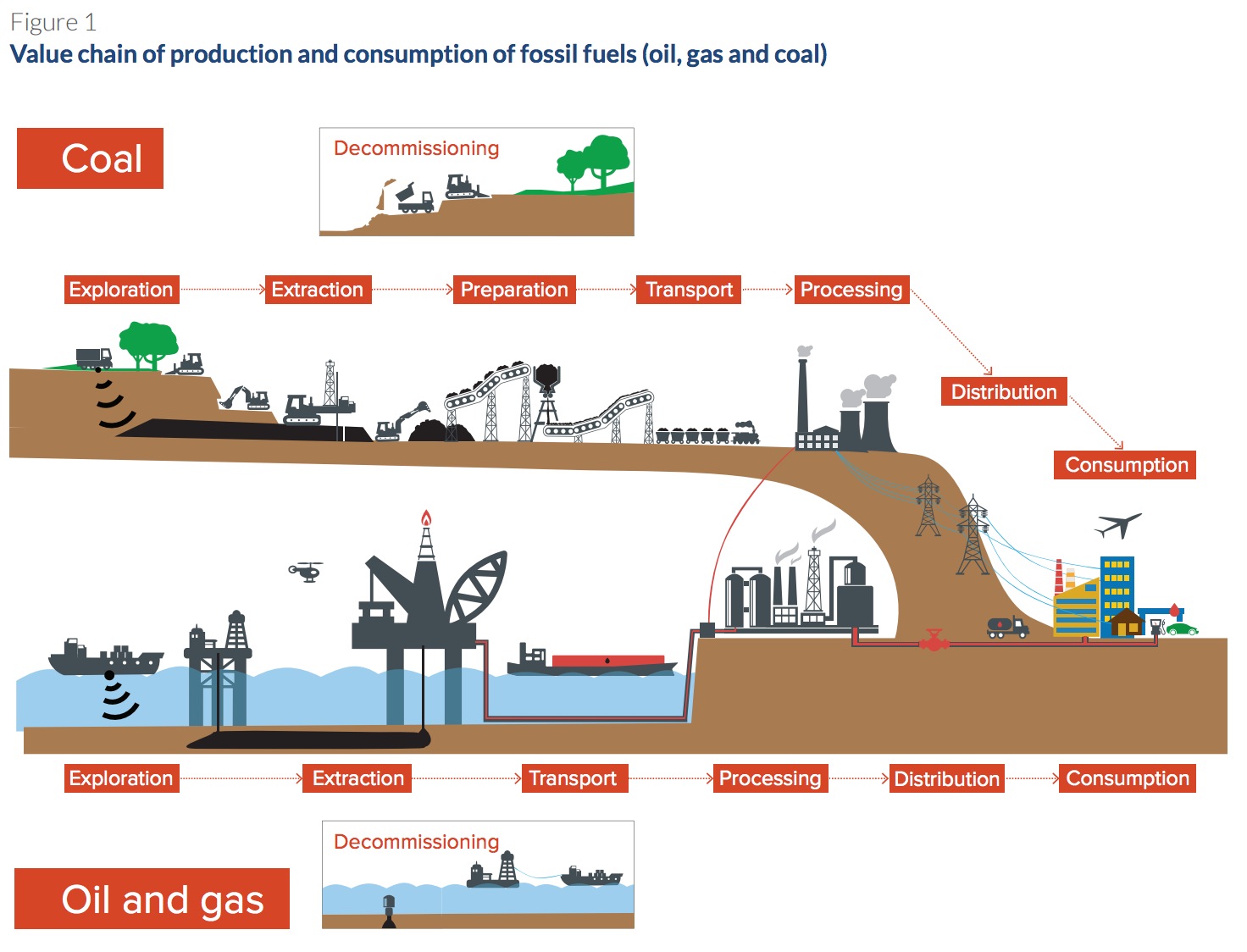THE NEW CLIMATE ECONOMY
Executive Summary
Worldwide, a significant proportion of the private sector receives some level of support, interventions and subsidies from the public sector. In the specific case of energy subsidies (of which fossil fuels are a subset) their use has been historically linked to supporting energy security, domestic energy production and access to energy.
In recent years, however, accounting for the full economic, social and environmental costs and benefits of subsidies for fossil fuels, along with the development of other government interventions to achieve the same objectives, has led to demands to start removing them. This report outlines the economic, social and environmental costs of fossil fuel subsidies, emerging evidence of the benefits to be derived from their reform and opportunities and processes to support such reform.
Fossil fuel subsidies can inhibit sustainable economic development by creating a burden on government budgets, reducing resources that could be put to more efficient use within the economy; increasing inequality and undermining access to affordable energy by benefiting the rich rather than the poorest members of society; decreasing the competitiveness of key industries, including low-carbon businesses, by discouraging investment in renewable energy and energy efficiency; increasing the risk of stranded assets (in the event of climate regulation) by encouraging exploration for and production of unburnable carbon; compromising energy security (compared to subsidising alternatives such as renewables and energy efficiency); damaging public health by increasing air pollution; and negating carbon price signals.
Despite this mounting evidence of the costs of fossil fuel subsidies, and the potential virtuous cycles that could result from their removal, governments are often reticent to undertake reform. Researchers have identified several specific reasons for the persistence of subsidies. Some of these are explicit, such as a lack of information, while others are implicit, driven by special interests. In addition, governments sometimes subsidise fossil fuels because they lack other effective means and institutional capacity to adopt more suitable policies. Taken together, these implicit and explicit barriers to reform create a dangerous inertia regarding subsidies even in the context of new technological, economic and social developments.
Despite the challenges associated with reform, a number of countries have recently made significant progress in reforming subsidies for fossil fuels across a wide range of sectors. The International Energy Agency (IEA) and the International Monetary Fund (IMF) have documented reforms undertaken in almost 30 countries in 2013 and 2014, some of which were spurred by falling oil prices. A number of these country case studies are included in this report (see Annex 3), and, in conjunction with wider research on the processes of reforming subsidies, have provided lessons for the key ‘ingredients’ for successful reform. These steps are very similar to those needed for any effective processes of policy change, and include:
- Mobilising resources in order to support many of the elements necessary for a robust reform process.
- Providing clear, open and honest information on the scale of subsidies, their costs and impacts, who pays and who benefits, plans for reform, and complementary measures to be adopted.
- Creating new institutions or strengthening existing ones to support reform.
- Using the fiscal space created for wider public goods.
- Reallocating the resources saved to those groups most affected by reform by adopting complementary measures. These may include support to sectors, industries and firms, and to households and individuals.
- Setting credible and predetermined timeframes for phasing out subsidies, staggering the elimination of different subsidies, and ideally undertaking reform as part of broader sector- or economy-wide reforms.
In relation to international support for the reform of fossil fuel subsidies, agencies such as the World Bank and bilateral donors are already providing resources and finance for ‘complementary measures’ in developing countries, such as support for health services, education, social protection, energy-sector development and economic diversification, but seldom in a way that is linked to subsidy reform processes, either in terms of institutional arrangements or timing. It will be important to not only increase these resources, but to also foster linkages between existing support mechanisms and the processes of (and linked to the benefits from) reforming fossil fuel subsidies.
Although this report highlights the fact that opportunities and processes for reforming fossil fuel subsidies take place at the national level, international cooperation is already supporting national reform efforts in a number of ways. These include identifying and estimating the cost of subsidies, country-level support for reform processes, coordination and drawing out lessons and advocacy. The high-level commitments to reform made by the G20, Asia-Pacific Economic Cooperation (APEC) and European Union (EU) countries, as well as key international agreements, present a critical opportunity for existing activities to be scaled up, and for new efforts to be developed in order to: 1) improve the availability of comparable information on fossil fuel subsidies; 2) increase technical and financial support for national reform efforts (with a focus on complementary measures); and 3) widen and strengthen countries’ commitments to reform.
The primary channels for greater international ambition and action are: bodies for reporting, tracking and accountability; financial and technical support, which must be diverted from providing subsidies and towards reform; multilateral and bilateral agreements (including on trade); and a greater understanding of the processes being undertaken by regions and countries that are already leading by example in reforming subsidies to fossil fuels.
Download full version (PDF): Fossil Fuel Subsidy Reform – From Rhetoric to Reality
About the New Climate Economy
newclimateeconomy.report
The Global Commission on the Economy and Climate, and its flagship project The New Climate Economy, were set up to help governments, businesses and society make better-informed decisions on how to achieve economic prosperity and development while also addressing climate change.
Tags: Fossil Fuels, The Global Commission on the Economy and Climate, The New Climate Economy







 RSS Feed
RSS Feed